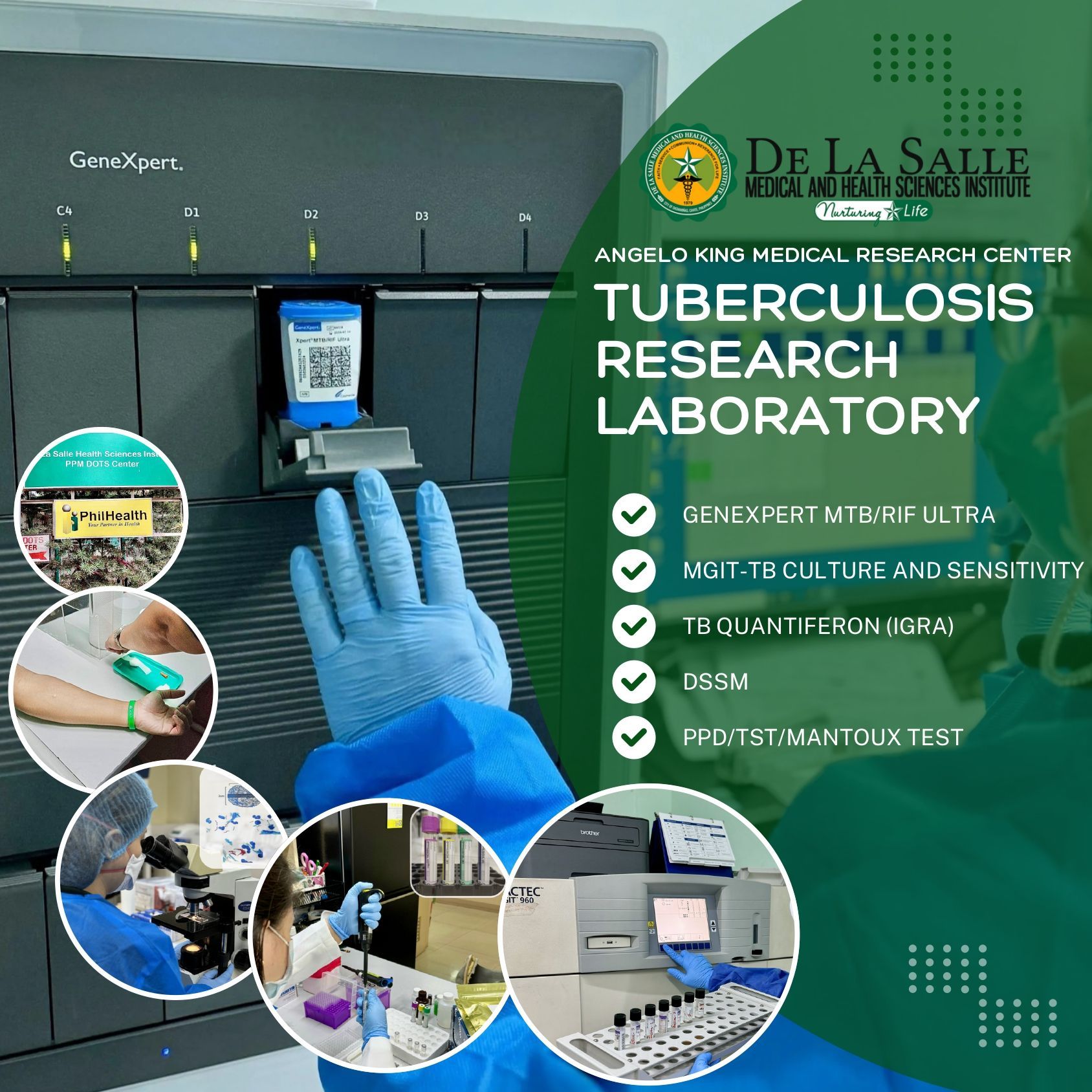
Tuberculosis Research Laboratory (TRL)
The Tuberculosis Research Laboratory (TRL) is a premier facility, offering and specializing in comprehensive TB-related diagnostics, treatment, and research services. It also contributes to the development of rapid and innovative diagnostic tests for TB. Additionally, the TRL actively builds collaborative partnerships for TB programs with the Department of Health. As part of an Integrated Delivery of Tuberculosis Services (iDOTS), TRL provides specialized care for both Drug Susceptible and Drug Resistant Tuberculosis that utilizes the Directly Observed Treatment Short-Course (DOTS) strategy, which aims to improve access to
diagnostic and treatment outcomes.
SERVICES OFFERED
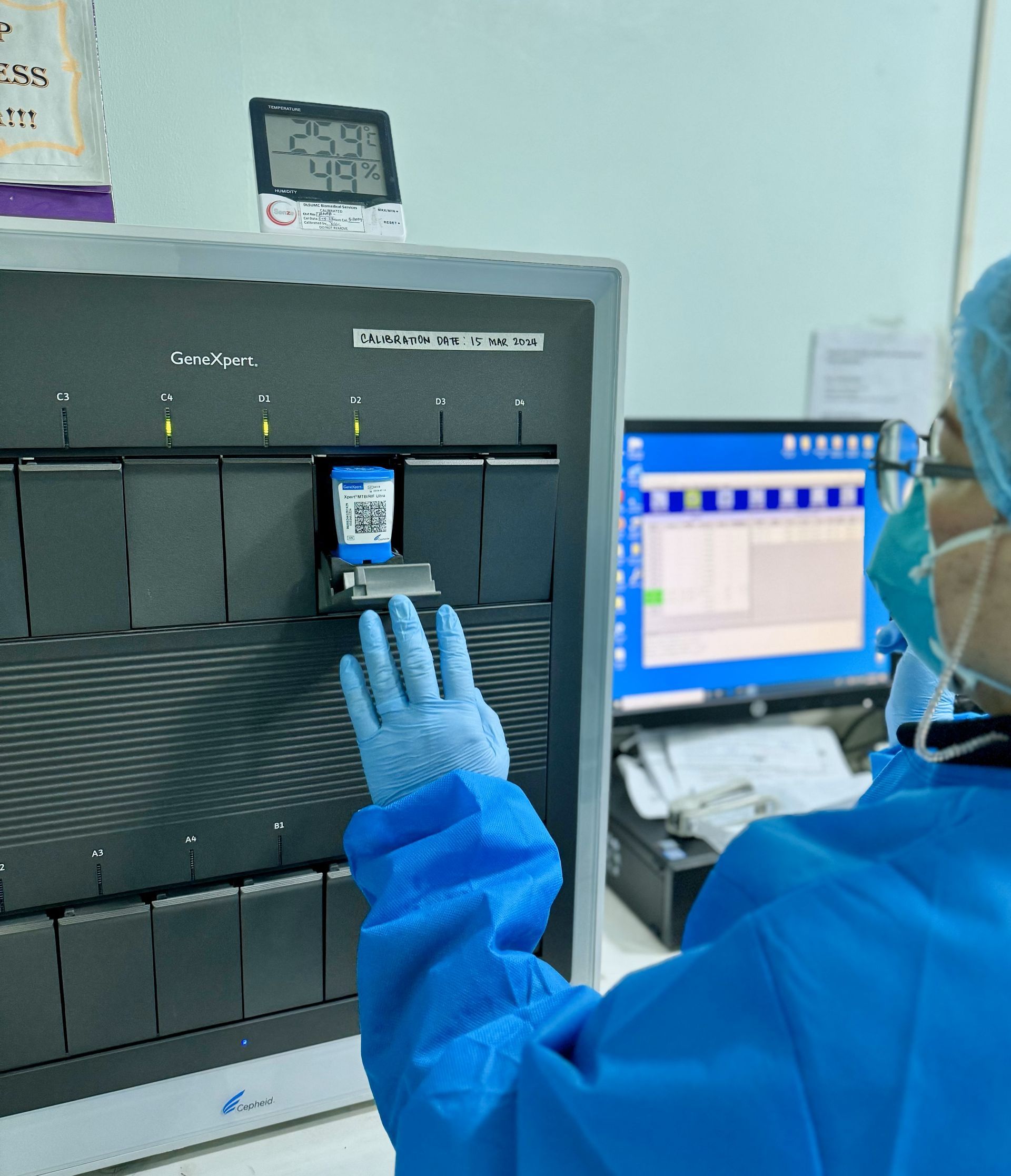
MTB Rif ULTRA GeneXpert Testing (GX)
Is a cartridge-based nucleic acid amplification test which is a primary diagnostic tool for the detection of Tuberculosis. It’s a semi-quantitative gene detection technology that’s based on fluorescence quantitative polymerase chain reaction (PCR) amplification and detection of Mycobacterium Tuberculosis (MTB) DNA and resistance to Rifampicin (RIF).
Specimen: Pulmonary (expect gross blood) and Extra Pulmonary except, blood, stool, and urine.
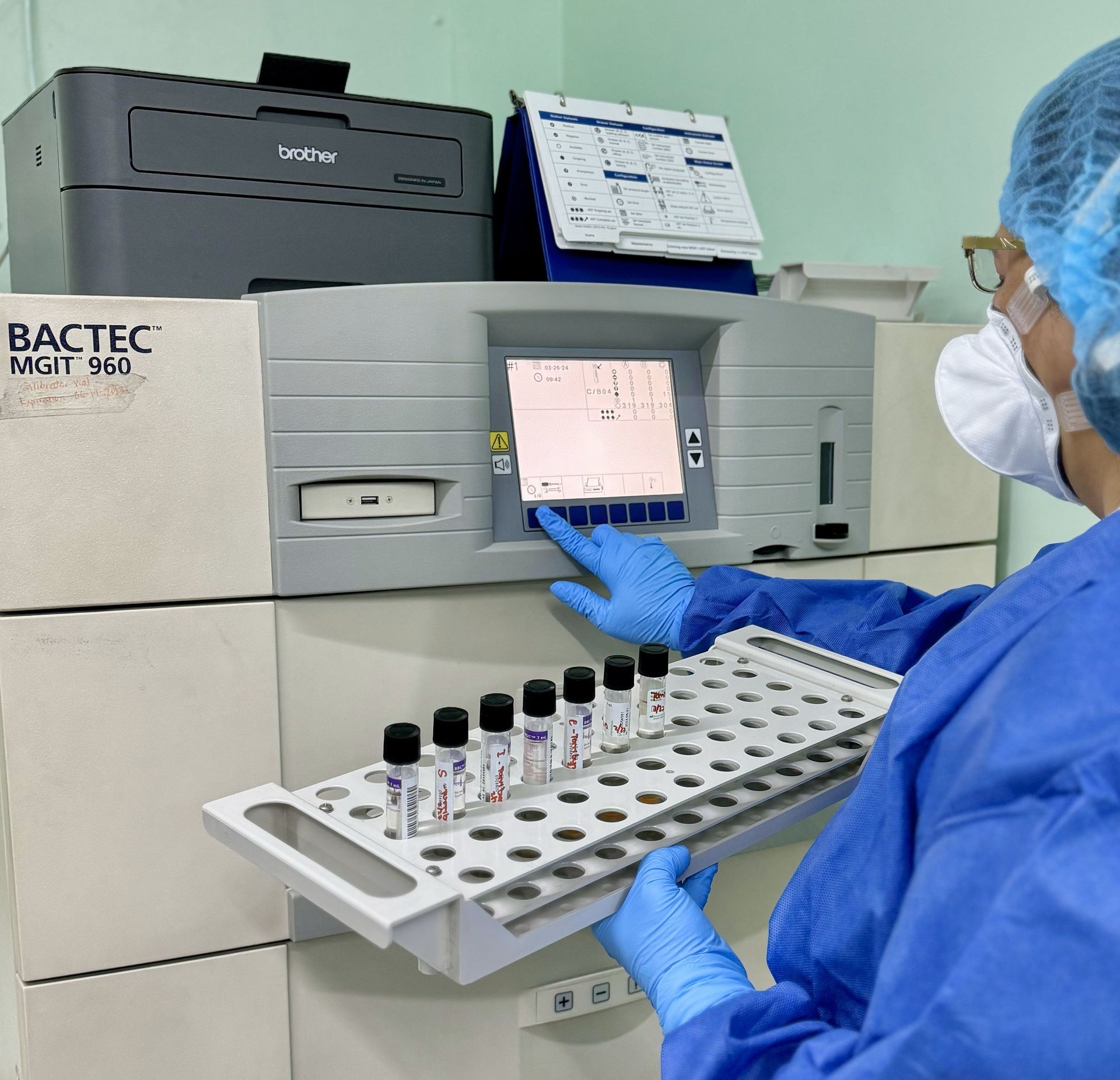
Mycobacteria Growth Indicator Tube (MGIT) – TB Culture (TBC) and Sensitivity (DST)
The MGIT 960 system is a liquid culture system used for the detection and recovery of mycobacteria. It is designed to yield better recovery and faster growth of mycobacteria compared to traditional solid cultures. MGIT can also be used for Drug Susceptibility Testing (DST) to determine which antibiotics are effective against TB bacteria.
Specimen: Pulmonary and Extra Pulmonary, except blood and stool.
Direct Smear Sputum Microscopy (DSSM)
Is a rapid and relatively inexpensive TB testing using Ziehl-Neelsen staining method, which colors the Acid-Fast bacilli (AFB) and examines them under the microscope to identify Mycobacterium Tuberculosis.
Specimen: Pulmonary and Extra Pulmonary, except blood and stool
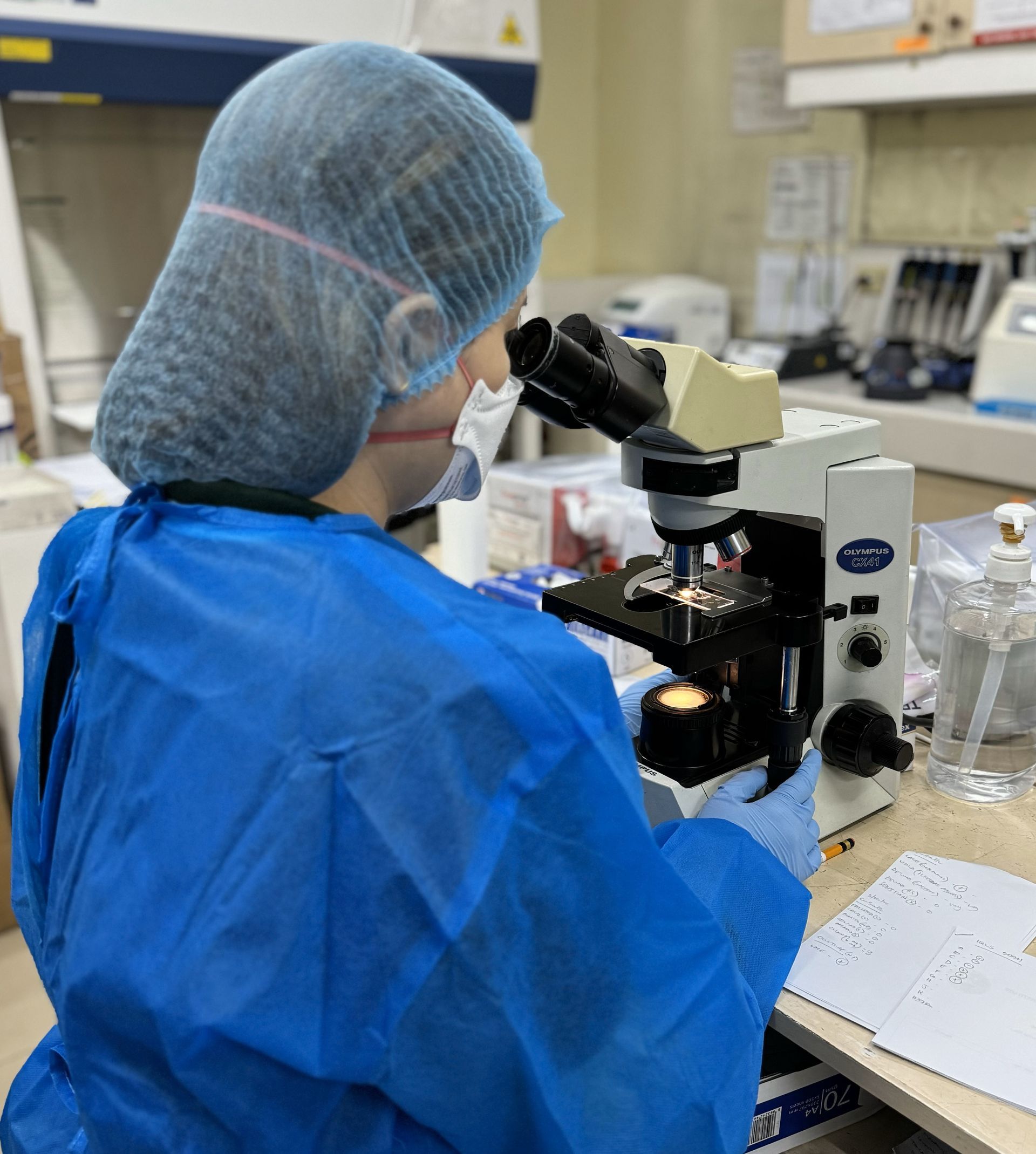
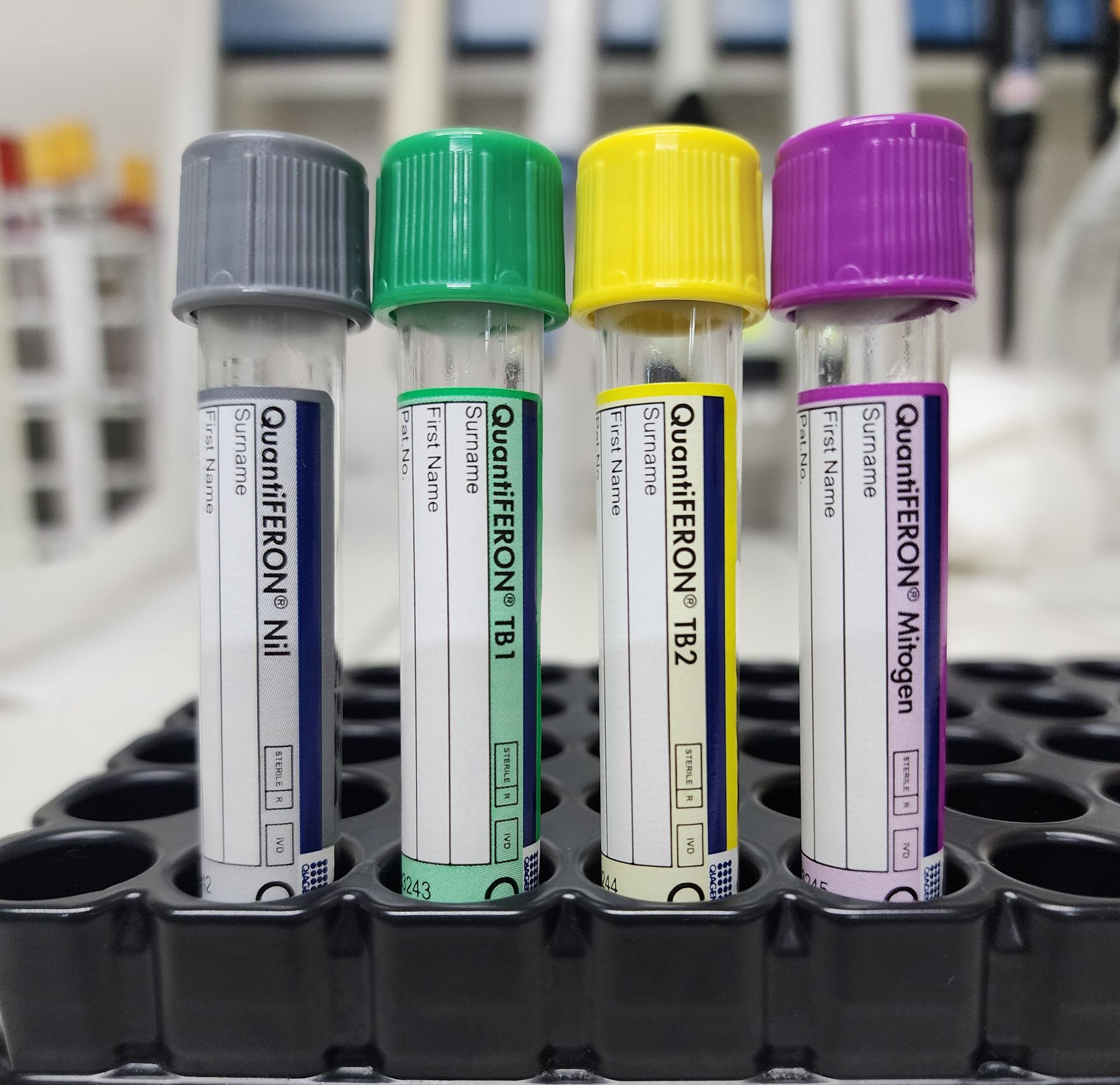
Interferon Gamma Release (IGRA)/QuantiFERON TB Gold Plus (QFT)
is a blood test that uses four (4) specific tubes (Nil, TB1, Mitogen, TB2) for the collection of blood samples, which are then incubated with specific TB antigens and controls. IGRA is used to detect the body’s immune response to Mycobacterium tuberculosis (TB) infection, acting as a modern alternative to the Tuberculin Skin Testing (TST). IGRA testing is generally not affected by prior Bacillus Calmette-Guerin (BCG), a vaccine used to prevent TB disease, usually given in infants and children, making it a preferred test for detecting latent TB infection in individuals.
Specimen: Blood
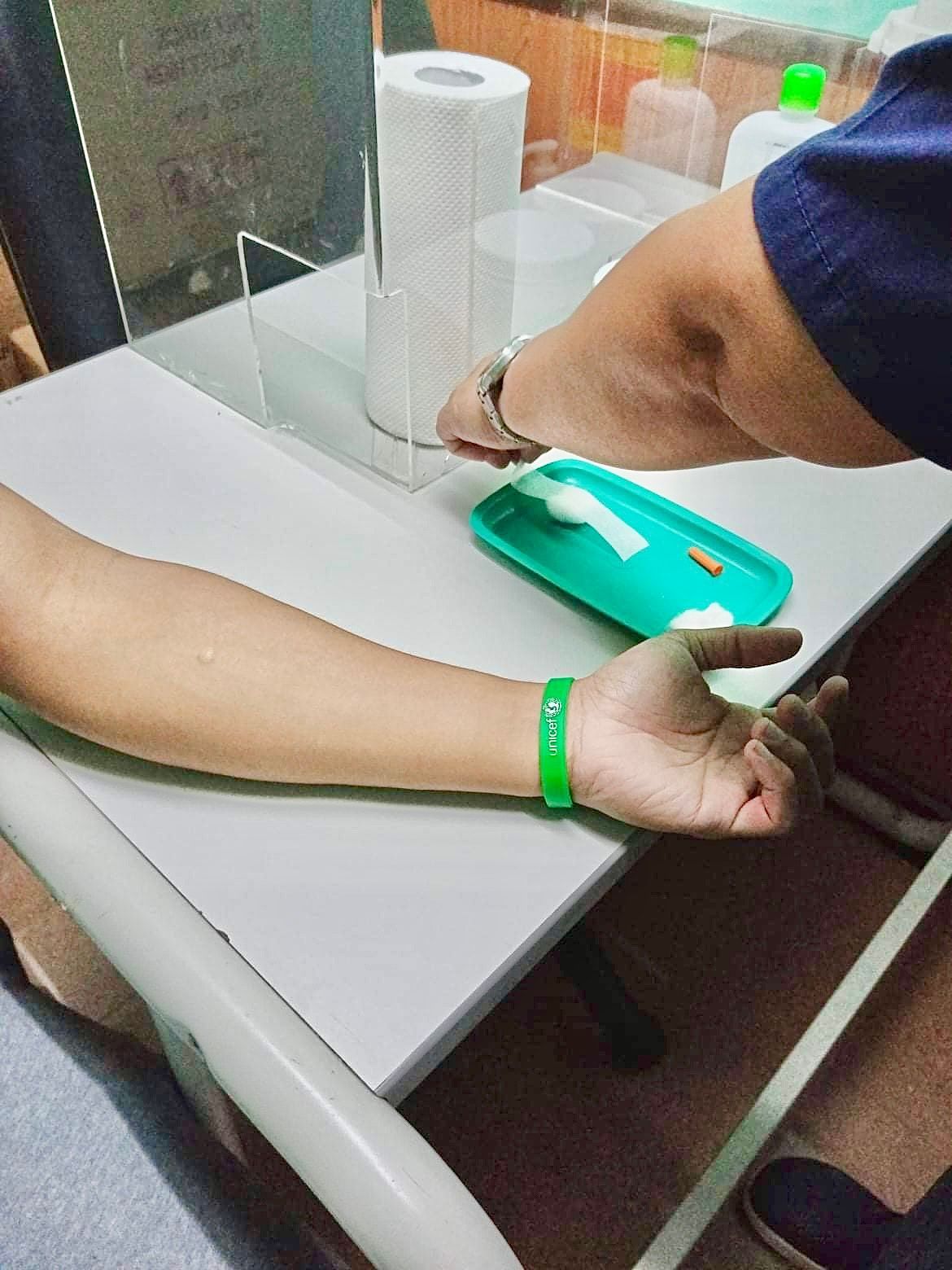
Tuberculin Skin Test (TST)/ Mantoux Skin Test/ PPD Test
is a method used to detect if someone has been exposed and infected with the bacteria that cause tuberculosis (TB). It involves injecting a small amount of a substance called Purified Protein Derivative (PPD) under the skin and measuring the reaction after 48 to 72 hours. It is a valuable tool for identifying people who may be at risk for developing TB disease.
Counselling, Treatment and Monitoring of Drug Susceptible and Drug Resistant Tuberculosis
Case Holding is the set of procedures to ensure that the patient with confirmed Tuberculosis is properly managed, treated, and monitored to prevent the spread of disease and ensure a successful outcome.
- Proper and regular adherence to counselling is important to the treatment of TB patients. It shall start before the treatment and continue two weeks after treatment, as well as monthly throughout the duration of treatment.
- Assigning of the appropriate anti-TB treatment regimen based on their diagnostic test result for bacteriologically confirmed TB or physician discretion for clinically diagnosed TB. Treatment shall be started within 5-7 days from diagnosis for bacteriologically confirmed TB.
- Treatment monitoring shall be undertaken by clinical, microbiological (Direct Smear Sputum Microscopy and Culture), and laboratory investigation according to recommended schedules and as needed.
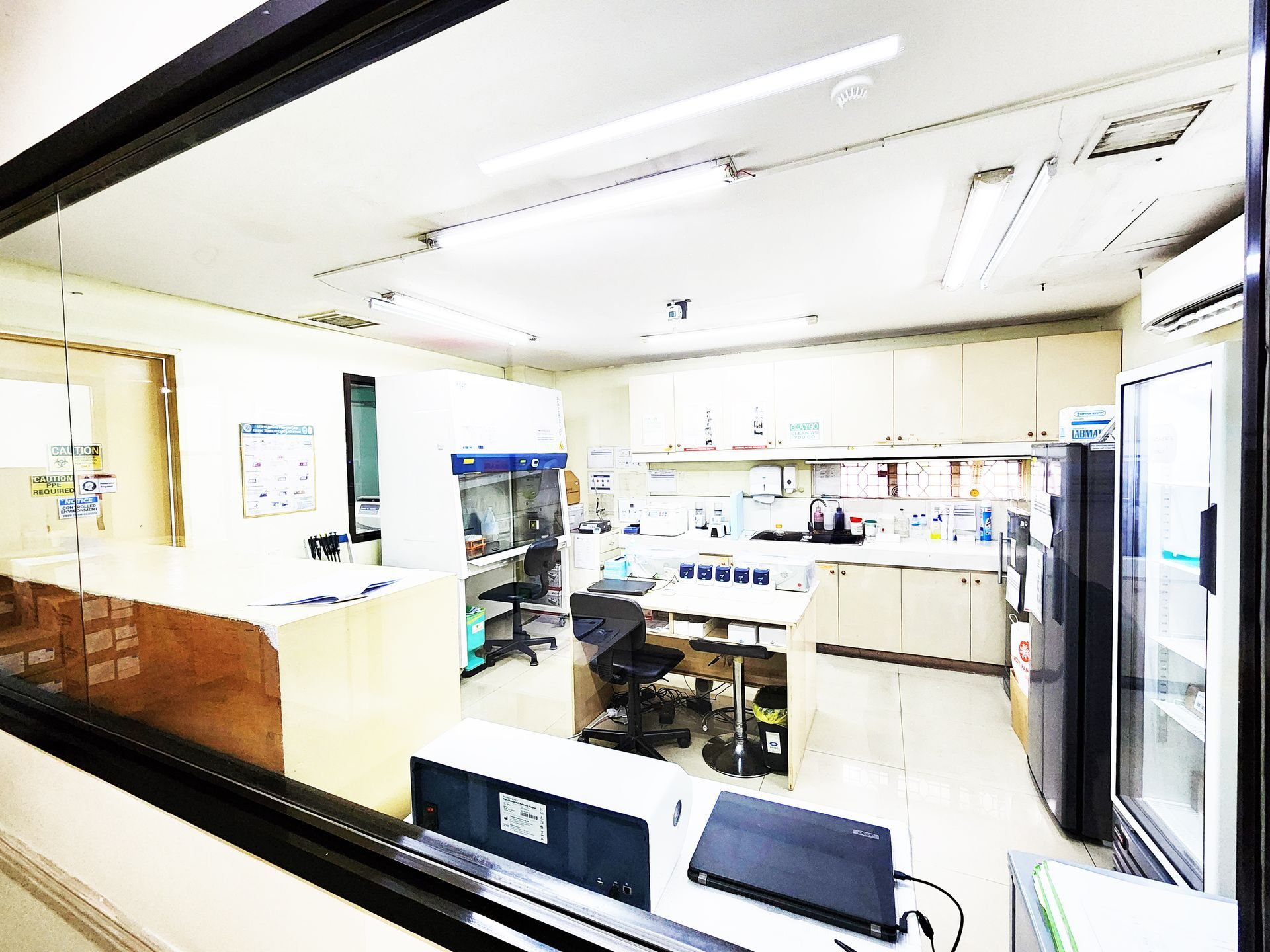
Contact Us
TUBERCULOSIS RESEARCH LABORATORY (TRL)
Basement, De La Salle Angelo King Medical Research Center
De La Salle Medical and Health Sciences Institute
We'd love to hear from you!
Research Support and Development
Local 1384
Research Education, Training and Development
Local 1383
Research Dissemination and Publication
Local 1384
Share your questions or feedback by filling out the form, and we’ll respond as soon as possible.
Contact Us
We will get back to you as soon as possible.
Please try again later.


